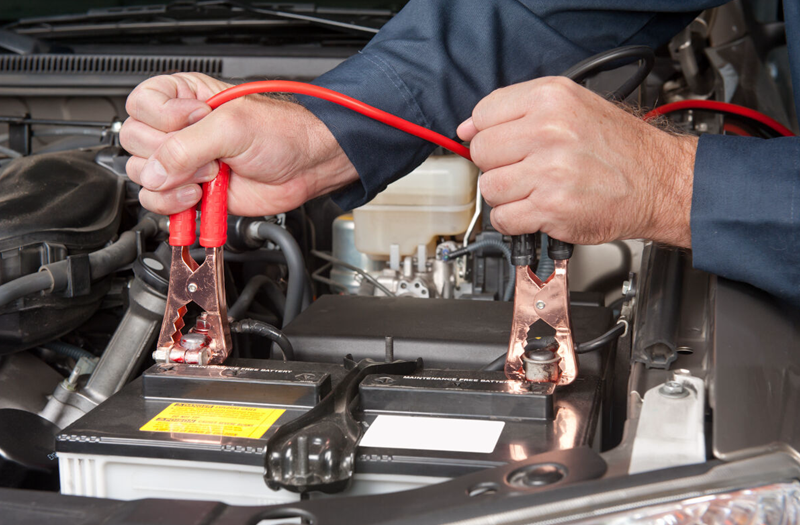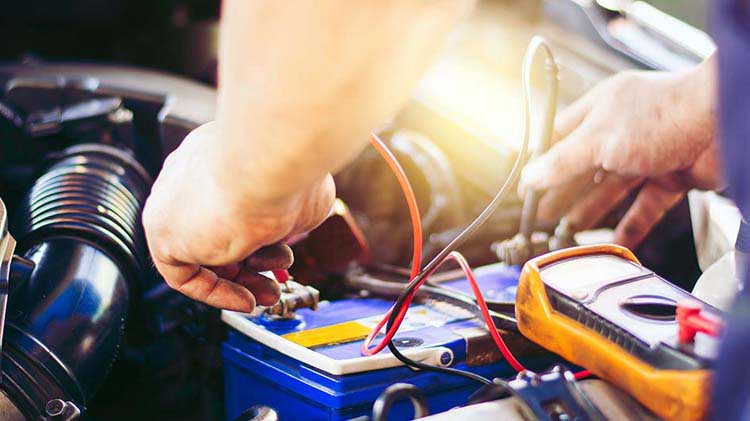Lithium Batteries Connected in Series: Understanding the Benefits and Risks
Lithium batteries have become increasingly popular due to their high energy density, long life, lightweight and low self-discharge rate. Many applications require a higher voltage than a single cell can provide, which is why lithium batteries are often connected in series. While this approach offers several benefits, it also introduces some risks that must be understood and managed.
Benefits of Connecting Lithium Batteries in Series
One of the most significant advantages of connecting lithium batteries in series is the ability to increase the voltage output. This is especially useful in applications such as electric vehicles, where a higher voltage is required to drive the motor. By connecting multiple battery cells in series, the voltage output can be increased without adding more weight or bulk to the system.
Another advantage of connecting lithium batteries in series is that it allows for higher energy storage capacity. The energy storage capacity of a battery is determined by its voltage and its capacity. Connecting multiple cells in series increases the voltage while maintaining the same capacity, resulting in a higher energy storage capacity.
Risks of Connecting Lithium Batteries in Series
While connecting lithium batteries in series offers many benefits, it also introduces some risks that must be considered. One of the most significant risks is that if one cell in the series fails, it can cause the entire battery pack to fail. This is known as a “domino effect,” where the failure of one cell causes a chain reaction that leads to the failure of the entire battery pack.
Another risk of connecting lithium batteries in series is that it can lead to uneven charging and discharging of the cells. If the cells in the series are not of the same capacity or state of charge, then some cells may become overcharged or undercharged. This can result in reduced battery life or even a safety hazard.

Managing the Risks of Connecting Lithium Batteries in Series
To manage the risks of connecting lithium batteries in series, several measures can be taken. One approach is to use battery management systems (BMS) that monitor the voltage, temperature, and state of charge of each cell in the battery pack. The BMS can detect any cells that are overcharged, undercharged, or overheating and take corrective action to prevent further damage.
Another approach is to use cells that are matched in terms of capacity and state of charge when connecting them in series. This ensures that each cell in the battery pack is charged and discharged evenly, reducing the risk of overcharging or undercharging.
결론
In summary, connecting lithium batteries in series offers several benefits, including increased voltage output and higher energy storage capacity. However, it also introduces some risks that must be managed, such as the potential for a domino effect if one cell fails and uneven charging and discharging of the cells. By using battery management systems and matched cells, these risks can be minimized, and the benefits of connecting lithium batteries in series can be realized.
-
 Introduction In recent years, with the growing demand for renewable energy sources and portable power solutions, the 12V 100Ah LiFePO4 battery has emerged as the ultimate power solution for various electrical needs. This technologically advanced battery offers several advantages over conventional options, making it an ideal choice for both residential and commercial applications. Unmatched Power and Efficiency ...더 읽어보세요
Introduction In recent years, with the growing demand for renewable energy sources and portable power solutions, the 12V 100Ah LiFePO4 battery has emerged as the ultimate power solution for various electrical needs. This technologically advanced battery offers several advantages over conventional options, making it an ideal choice for both residential and commercial applications. Unmatched Power and Efficiency ...더 읽어보세요 -
 Golf carts have become a common sight on golf courses around the world. These small electric vehicles have replaced the traditional caddies, making it easier for golfers to move around the course. One of the most important components of a golf cart is its battery. In this article, we will explore the importance of a golf cart battery and how...더 읽어보세요
Golf carts have become a common sight on golf courses around the world. These small electric vehicles have replaced the traditional caddies, making it easier for golfers to move around the course. One of the most important components of a golf cart is its battery. In this article, we will explore the importance of a golf cart battery and how...더 읽어보세요 -
 In today's fast-paced world, reliable power is a must-have. Whether it's for work or play, having a dependable source of energy is essential. However, sometimes things don't go as planned, and unexpected power outages can occur. This is where an emergency starter battery comes in handy. An emergency starter battery is a portable battery pack that provides power when...더 읽어보세요
In today's fast-paced world, reliable power is a must-have. Whether it's for work or play, having a dependable source of energy is essential. However, sometimes things don't go as planned, and unexpected power outages can occur. This is where an emergency starter battery comes in handy. An emergency starter battery is a portable battery pack that provides power when...더 읽어보세요 -
 서론 세계 인구가 지속적으로 증가함에 따라 식량 생산에 대한 수요가 급격히 증가하고 있습니다. 이러한 요구를 충족시키기 위해 농업 산업은 첨단 기술의 채택을 통해 상당한 변화를 겪고 있습니다. 농업의 주요 기술 발전 중 하나는 농업 도구에 고출력 리튬 배터리를 사용하는 것입니다. 이 배터리는 향상된 전력을 제공할 뿐만 아니라...더 읽어보세요
서론 세계 인구가 지속적으로 증가함에 따라 식량 생산에 대한 수요가 급격히 증가하고 있습니다. 이러한 요구를 충족시키기 위해 농업 산업은 첨단 기술의 채택을 통해 상당한 변화를 겪고 있습니다. 농업의 주요 기술 발전 중 하나는 농업 도구에 고출력 리튬 배터리를 사용하는 것입니다. 이 배터리는 향상된 전력을 제공할 뿐만 아니라...더 읽어보세요 -
 The demand for renewable energy sources has increased significantly in recent years, and it has led to an increase in the production of lithium-ion batteries. Among these batteries, the LiFePO4 battery is gaining popularity due to its long cycle life, high safety, and environmental friendliness. In this article, we will discuss the price of a 100Ah LiFePO4 battery. The...더 읽어보세요
The demand for renewable energy sources has increased significantly in recent years, and it has led to an increase in the production of lithium-ion batteries. Among these batteries, the LiFePO4 battery is gaining popularity due to its long cycle life, high safety, and environmental friendliness. In this article, we will discuss the price of a 100Ah LiFePO4 battery. The...더 읽어보세요 -
 Introduction: Our 12V 100Ah LiFePO4 battery is the perfect solution for powering up your devices efficiently. Whether you're using it for your RV, boat, or solar panel system, this battery is designed to provide reliable and consistent performance. Features: 1. High energy density: Our LiFePO4 battery has a higher energy density than other batteries, which means it can...더 읽어보세요
Introduction: Our 12V 100Ah LiFePO4 battery is the perfect solution for powering up your devices efficiently. Whether you're using it for your RV, boat, or solar panel system, this battery is designed to provide reliable and consistent performance. Features: 1. High energy density: Our LiFePO4 battery has a higher energy density than other batteries, which means it can...더 읽어보세요 -
 Introduction Lithium iron phosphate (LiFePO4) batteries have gained popularity in recent years due to their high energy density, low self-discharge rate, and long cycle life. With the increasing demand for renewable energy and electric vehicles, LiFePO4 batteries have become a preferred choice for many applications. In this article, we will compare the performance and specifications of various LiFePO4 batteries...더 읽어보세요
Introduction Lithium iron phosphate (LiFePO4) batteries have gained popularity in recent years due to their high energy density, low self-discharge rate, and long cycle life. With the increasing demand for renewable energy and electric vehicles, LiFePO4 batteries have become a preferred choice for many applications. In this article, we will compare the performance and specifications of various LiFePO4 batteries...더 읽어보세요

